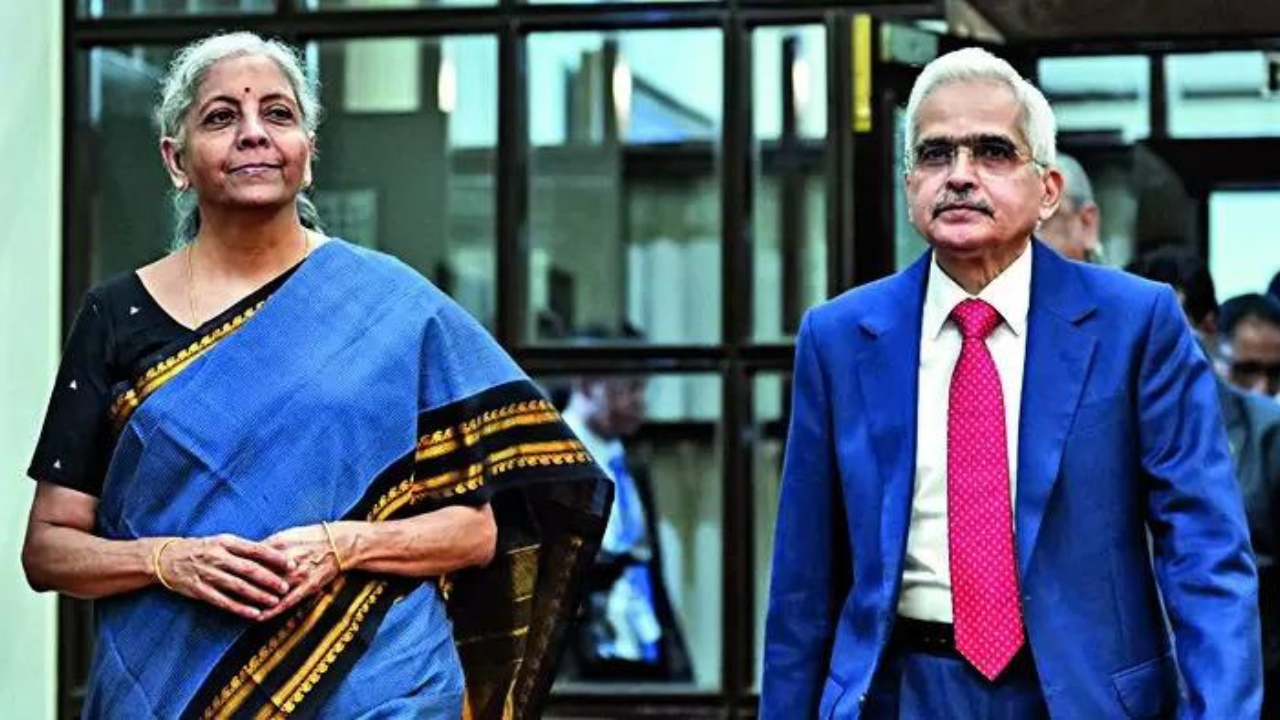[ad_1]
NEW DELHI: Govt and RBI on Saturday asked banks to sharpen focus on deposit mobilisation, by deploying innovative tools and tackling competition from other investment products, while refusing to step in with policy interventions. RBI has expressed concern over lending growth being faster than the rise in deposits for several months and finance minister Nirmala Sitharaman on Saturday said that bank executives should focus more on the “core activity”.
“Huge deposits have always been a lazy banker’s job. But the trickles which come are going to be your bread and butter money to bank on lending regularly. That trickle was the emphasis a long time ago, deposit mobilisation. Now we have gone over to this side completely… Requisite small deposits is a very important job of the bank, it may be grinding, monotonous, but that’s where your bread and butter comes,” Sitharaman told reporters after addressing the customary post-budget board meeting of RBI. The minister said she will take it up, along with other issues, when she meets state-run bank chiefs later this month.
RBI governor Shaktikanta Das too called for banks to innovate. “There will always be a mismatch… We have been witnessing a 300-400 basis points (or 3-4 percentage points) gap between credit and deposit growth, deposits are lower. It has been observed for the last few months. At the moment, our effort is to just highlight this point: a proactive caution for bank managements that going forward, this may create structural issues with regard to liquidity management. As it stands today, there is no crisis, but it needs to be dealt with by individual banks… Today, lending has become digital, so there is very fast growth. Deposit mobilisation is still in the physical mode. Banks will have to come out with innovative approaches to mobilise deposits,” he told reporters.
He also made it clear that banks were free to decide on interest rates and RBI did not want to “distort” the market through intervention. On rate cut, he said the focus was usually on borrowers, but there were depositors too whose interest had to be kept in mind.
On the decision to change the rules for nomination in the banking amendment bill introduced in Parliament on Friday, the FM said, “Nominations is one of the customer-friendly steps as it is important for customers to have a choice and to ensure nominees do not face any difficulty in getting what is rightfully theirs… The most significant amendment towards fortnightly reporting data, instead of the old British way of reporting… This will help timely updations and at the end of year there won’t be lump sum changes.”
“Huge deposits have always been a lazy banker’s job. But the trickles which come are going to be your bread and butter money to bank on lending regularly. That trickle was the emphasis a long time ago, deposit mobilisation. Now we have gone over to this side completely… Requisite small deposits is a very important job of the bank, it may be grinding, monotonous, but that’s where your bread and butter comes,” Sitharaman told reporters after addressing the customary post-budget board meeting of RBI. The minister said she will take it up, along with other issues, when she meets state-run bank chiefs later this month.
RBI governor Shaktikanta Das too called for banks to innovate. “There will always be a mismatch… We have been witnessing a 300-400 basis points (or 3-4 percentage points) gap between credit and deposit growth, deposits are lower. It has been observed for the last few months. At the moment, our effort is to just highlight this point: a proactive caution for bank managements that going forward, this may create structural issues with regard to liquidity management. As it stands today, there is no crisis, but it needs to be dealt with by individual banks… Today, lending has become digital, so there is very fast growth. Deposit mobilisation is still in the physical mode. Banks will have to come out with innovative approaches to mobilise deposits,” he told reporters.
He also made it clear that banks were free to decide on interest rates and RBI did not want to “distort” the market through intervention. On rate cut, he said the focus was usually on borrowers, but there were depositors too whose interest had to be kept in mind.
On the decision to change the rules for nomination in the banking amendment bill introduced in Parliament on Friday, the FM said, “Nominations is one of the customer-friendly steps as it is important for customers to have a choice and to ensure nominees do not face any difficulty in getting what is rightfully theirs… The most significant amendment towards fortnightly reporting data, instead of the old British way of reporting… This will help timely updations and at the end of year there won’t be lump sum changes.”
[ad_2]
Source link



